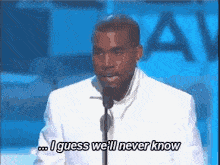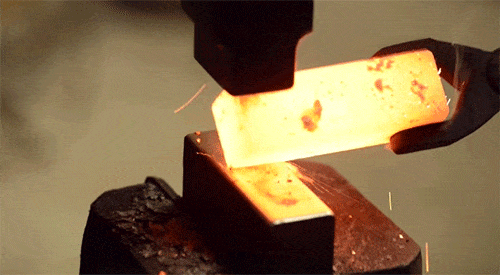“Ma, she’s shedding crocodile tears!” That was my favorite idiom in Primary school.
I could easily have said, “Ma, those are fake tears”. But, what better way to show my fluency in the English language and also sound very convincing?

Now, whether she was indeed shedding crocodile tears or I was the one who was as crooked as a dog’s hind leg (liar, liar, pants on fire), it’s safe to say idiomatic expressions give you an edge in fluency and automaticity when communicating.
What are idioms and proverbs?
Idioms are a group of words established by usage as having a meaning not deducible from those of the individual words. Okay, in case that was a tad confusing, idioms are basically a group of words with a particular meaning.
They are different from proverbs, which are short, well-known sayings stating a general truth or piece of advice, e.g. a happy heart is better than a full purse.

Whether or not a happy heart is better than a full purse, proverbs are handy sayings that strike our hearts better than normal sayings. They spring clarity, relieve interpersonal tensions, aid in understanding, reinforce morals and inspire others.
I’ll help you strengthen your arsenal of idioms and proverbs for times you’ll need to showcase your fluency and also advise yourself or another.
SEE: Popular Nigerian Male Names and Their Meanings
Idiomatic expressions you should know
To shed crocodile tears
Look at you wondering if my classmate in primary four was actually faking the tears or I was lying.

The idiom, “to shed crocodile tears” was gotten from a weird tendency of crocodiles to release tears as they eat. Humans are the species known to produce emotional tears. Crocodiles appear like they are crying while consuming their prey.
People who shed crocodile tears don’t feel sorry for their actions.
READ: Slangs in Nigeria: Meaning of Aza, Sapa, and Others
Crooked as a dog’s hind leg
I’m sure you know what the hind leg of a dog looks like. This idiom is for a person or people who are dishonest, unscrupulous, and deceptive. Now, use this idiom when next you are gossiping about Baba Tope and you do not want him to know you are saying “he is a dishonest man”.
I’m still not telling you if I was lying or not.
Pot calling the kettle black
When pots and kettles are used over a fire, they turn black. This idiom relates to a person who is accusing someone of an offense they themselves are also guilty of.
SEE: Childhood Insults That Hurt Worse Than Koboko
Dot the i’s and cross the t’s
This idiom probably brings back memories of that wicked exam invigilator that won’t give five minutes more. All he wants is for you to dot your i’s and cross your t’s.
However, this idiom can be used in different facets of life as it involves you paying attention to every single detail.
Bury the hatchet
The origin of this idiom was the Native Americans. They buried hatchets to symbolize the end of a fight with enemies. Thankfully, we are not in the seventeenth century anymore.
Burying the hatchet in our time signifies the end of a quarrel or an argument with a friend (what a downgrade).
Strike while the iron is hot

When a blacksmith works, he must shape the iron into the desired object while it is still red-hot. This also means that we should recognize opportunities quickly and take advantage of them while they are still around.
As the saying goes; opportunity comes but once (Now, that’s a proverb)
A close shave
When you hear the word “shave”, you think of “barber”. When barbers shave customers or one shaves one’s self, there is a possibility of cutting or barely escaping injury. Hence, we use this idiom when someone barely escapes a disaster.
Instead of “e remain small”, say “that was a close shave”.
READ: Zodiac Signs – All You Need To Know
Cut from the same cloth
Cloth, sow, seamstress, etc. These are words that come to mind when I think of cloth. Tailors make cloth from the same piece of fabric. In the same vein, to be cut from the same cloth means to be very similar to someone.
Climb on the bandwagon
A lot of us do this but we know not what we doeth. To climb unto a bandwagon means to support someone else’s idea in hopes of personal gain. I guess you can say such a person is as crooked as a dog’s hind leg.

Kill two birds with one stone
Don’t take this literally, please, except if you’re using a jutsu. This means to achieve two or more objectives with one action.
I cannot exhaust the list of idioms so I’ll list a few more:
- Takes two to tango: Needs more than one person to achieve the task
- Piece of cake: Very easy
- Costs an arm and a leg: Very expensive
- Break a leg: An ironic idiom used to wish someone success
- Blow off steam: Calm down
READ ALSO: What is Sapa, Is It a Good Thing?
Popular proverbial sayings you should know
The pen is mightier than the sword
I don’t know the scale they used to measure might when this proverb was written, but someone needed to have examined it.
To be candid though, there is a certain logic to it, especially in this new age of “cancel culture” where people aren’t allowed to air their opinions. It is pertinent that growing revolutionaries know that a pen or that phone in your hand is a greater weapon than a sword or that mouth with the intention to cancel you.
READ: Cancel Culture: An Organized Kind of Chaos
Action speaks louder than words
The person that said this never heard the shouts of a conductor or your mother when you do wrong (No action fit loud pass am, I tell you).
This proverb is usually used when someone needs to prove their intentions and loyalty as a friend.
At this point, your words are not enough; you need to back them up with action.
A journey of a thousand miles begins with a single step
These proverbs confuse me a lot, because did I tell you I’m an Israelite? Abi why I go dey trek for a thousand miles?

That’s not what the proverb means though. it aims to inform us that every plan we might have, no matter how big, begins with a small step.
Just start.
Don’t let the heftiness of your dreams and plans stop you from pursuing them.
SEE: What is the Meaning of Zazu?
A leopard doesn’t change its spots
This is a very popular proverb often told to people that have repeatedly done wrong. When someone has proven to be unable to change a vile character, it’s safe to say they can never change.
All that glitters is not gold
A piece of advice to everyone that not everything that looks valuable actually is. Outwardly, it might look like it’s worth it but at the end of it all, na waste.
An hour in the morning is worth two in the evening
It’s no surprise that people are generally more productive in the morning than in the evening. When someone tends to procrastinate his plans and duties till evening time, you can advise the person with this proverb.
ALSO READ: Pet Culture in Nigeria
An idle mind is the devil’s workshop
Remember when you were little and you’d be sitting alone and you’ll hear “Go and steal milk”? That is no surprise, When one has no work to do, one tends to lead a life of mischief.
A stitch in time saves nine
In full, a stitch in time saves nine other stitches. This means it’s better to deal with issues as soon they present themselves rather than allowing them to worsen.
Beauty is in the eye of the beholder
The thing beautiful in your eye might not be in another’s. It balls down to perspective in the end.

Beggars can’t be choosers
Have you tried giving old naira notes to beggars in 2023?

Beggars accept what is given to them. They have no right to reject what is given to them out of the generosity of others.
Other proverbs you should know include:
- The best things in life are never free
- Better late than never
- Blood is thicker than water
- Cowards die many times before their death
- Curiosity killed the cat
In conclusion
The importance of idioms and proverbs can be noted in our everyday communication and cannot be overlooked. It enables our fluency and also allows us to speak right.
